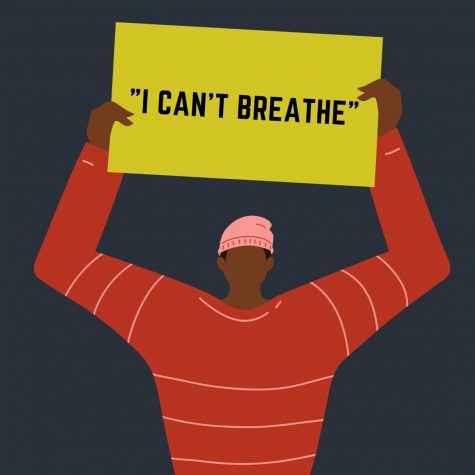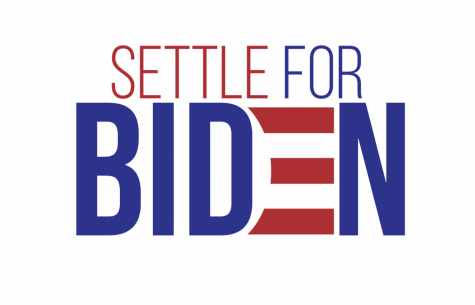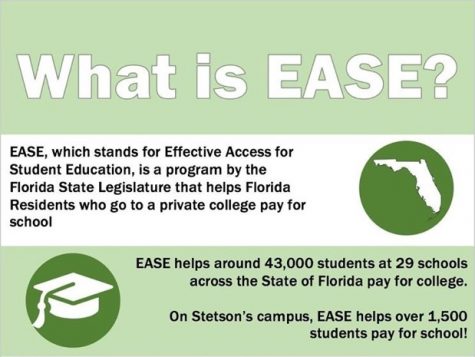Wheels of Democracy
With the Florida Democratic Primary right around the corner, and over 5 viable candidates still in the race, it’s important that we as students are educated on who is advocating for what. This guide will hopefully help those of you who are registered Democrats make your selection process easier on March 17.
Amongst the near deafening noise of calamities in the news—Australia on fire, a deadly new viral outbreak coming out of China, near war with Iran, an ongoing Impeachment trial—it’s hard to remember that in a few weeks, Democratic registered voters of the state of Florida will be asked to pick a new nominee to run against Donald Trump for president of the United States.
Throughout an incredibly entertaining election that at one point featured over 20 different candidates. Fortunately we can now throw many of these names aside and focus on the few that are polling high in Florida and nationally.
After an embarrassing Iowa Caucus, it’s easy to write off the Democratic National Convention (DNC). Luckily, Florida doesn’t participate in the Caucus style of voting. I hope this guide makes the process a bit easier for those of you who haven’t been meticulously watching the election cycle as it has unfolded, and hopefully you will be able to walk away with a candidate in mind.
Joe Biden

The former senator and vice president of the United States entered his name into the ring a bit later than most names on this list, but due to his high political recognition and well known celebrity status, his campaign has sat comfortably in 1st place amongst national polls for some time now. A majority of his appeal is found in his promise to return American politics to the time before Trump, modeling many of his policy positions as natural evolutions off of those pursued by Barack Obama.
Student Debt Forgiveness: It’s complicated
No, the former Vice President does not believe that student debts should be forgiven unless you make more than $25,000 a year, but then it gets interesting. Biden is asking you to pay 5% of your income directly to loans over 20 years. Upon the 20th year, the government will pick up the rest of the tab. He is advocating for two years of free community college.
Universal Healthcare: No
Biden’s focus is improving upon his co-worker and friend’s Affordable Care Act, more commonly known as “Obamacare.” Biden believes in the system and would like to see it improved and expanded.
Environment: Moderate, for the other candidates’ standards
Biden’s campaign rolled out a comprehensive environment plan in July, one that has been the subject of numerous progressive attacks. His plan is no Green New Deal, but it appears to be taking a more moderate, incremental, kinder–to–industry approach. Joe wants to expand America’s nuclear power programs and wants to tax carbon emissions. A focus on renewable investments and innovations is outlined in his plan. He is also pledging to reach no emissions by 2050, reentering the Paris Climate Accord, and assisting vulnerable communities from polluters. His plan looks to cost $1.7 trillion.
Economy: Moderate
Biden’s economic plan is nothing new or particularly interesting. He wants a $15 minimum wage, a push for paid sick leave, and promises to rebuild the middle class. Not sure how he plans on doing it, but we’ll see.
Civil rights:
Biden has a mixed track record when it comes to civil rights. In his younger years as a freshman senator, Biden was mentored by iconic “DixieCrats,” or southern Democrats who adamantly opposed desegregation and the civil rights act. On the other hand, Biden began his career in public service as a public defender. He’s repeatedly made it a point to remind voters how proud he was of defending poor African Americans in Delaware. Furthermore, Biden’s track record includes fighting for the Voting Rights act, as well as defending public bussing.
Bernie Sanders

Vermont Senator Bernie Sanders is neither a stranger to presidential nomination campaigns, nor is he a stranger to second place. This time around, however, Bernie has been rapidly gaining in the polls, with many speculating a comfortable delegate lead heading into Super Tuesday come March 3. The senator has been lambasted by the right and moderates as too progressive, and issues regarding electability in a race against Donald Trump have been raised. Yet with the most cash on hand in the election—upwards to $61 million—and big momentum out of Iowa and New Hampshire, there seems to be no stopping voters from feeling the Bern.
Student Debt Forgiveness: Yes
Bernie believes that through a lofty increase in wealth tax rates against the rich, all student debt in the United States can be paid off. He is also a supporter of free higher education, believing that all public universities, colleges, historically black colleges and universities (HBCU’s), and trade schools should be free to the American public. He also plans on investing $1.3 billion into private universities and historically black not–for–profit schools to improve student choice for higher education.
Healthcare: Universal, no options
The OG of universal single payer healthcare as a politically viable conversation piece, Bernie has and continues to lead the charge on advocating for universal health care. He has not specified how he will pay for it, yet adamantly believes that it is possible. His attacks on Big Pharma and promise that Americans will pay no more than $200 a month on medication is an admirable goa l.But the cost to fulfil said goal is astronomical and has left his campaign open to criticisms of unobtainable idealism instead of pragmatic policy setting.
Environment: Extremely progressive
Bernie is a supporter of the Green New Deal, an incredibly progressive environmental plan that would ban all nuclear power, fracking, and new oil drilling, impose strict government regulations on emissions, and ensure the transition from fossil fuel usage to renewable energy by 71% nationwide at the end of the decade. Bernie is planning on meeting this goal by investing $17 trillion into a public works program dedicated to increasing renewable energy infrastructure.
Economy: Seize the means of production
Bernie speaks at length on the subject of taxation and wealth inequality in the United States. Protectionist is the word that comes to mind to explain Bernie’s trade principles. If elected president, he plans on raising taxes on the extremely wealthy, generating $4.5 trillion in tax receipts. Some economists are predicting his proposed social programs to cost around $97 Trillion altogether. This of course would massively increase our national debt and debt obligations. He also plans on creating an “extremely wealthy” registry. A physical list of the 1% to ‘increase accountability.’ Or spark class warfare, your call.
Civil Rights: Protected
Bernie has been a champion of civil rights throughout his political career, from being arrested in rallies against segregation, to supporting legislation that would help increase the visibility and rights of the LGBTQ+ community. Controversy struck recently, however, after an alleged controversy regarding a claim by Elizabeth Warren, Bernie’s long time friend, stating that Bernie reportedly stated that “A woman cannot win president of the United States.” While the validity of that conversation is unknown, many have begun to increase vetting on the senator’s long and storied past.
Elizabeth Warren

The senator from Massachusetts saw an incredible amount of momentum behind her Iowa campaign in August, only to see it sputter out and disappear come Caucus day. Nevertheless, the senator has inspired thousands of young American women to stand up and have their voices heard. From a policy standpoint, her and Sanders are nearly identical. Both are extremely progressive candidates with a heavy emphasis on increasing taxes on the wealthy. Yet where they differ is Warren’s belief that corporatism can be a net good for America.
Student Debt Forgiveness: Yes
Warren also plans, much like Sanders, to cancel all student debt as soon as she enters office. Using what she calls the “Ultra-Millionaire” tax, she plans on making all college tuition free – again, much like Sanders.
Healthcare: Universal, no options.
Sanders and Warren are the only two candidates advocating for complete and universal healthcare for all. Free doctor visits, free emergency room visits, free surgery, you get the point. Again, much like Sanders, to address concerns of the how and what, she has been extremely vague. The empirical data simply does not exist on either campaign, but they’re sure as hell great stump points.
Environment: Green New Deal
Warren is also a supporter of the Green New Deal. Arguing for 100% renewable/clean energy fueling America. Contrary to Sanders however, Warren has proposed a Blue deal to secure the safety of our oceans. Both Sanders and Warren believe in a renewed interest in the agriculture economy, and an attack on oil industries.
Economy: Tax on the wealthy, increase minimum wage.
I sound like a broken record, but when it comes to massively increasing social programming like Warren and Sanders want to do, a massive increase in tax receipts must follow. The subject of debate, however, is where exactly will these new tax revenues come from? Warren wants to tax the ultra wealthy and so does Sanders. Warren focuses on the Middle class as a talking point. “Rebuilding it” is her goal and she plans on doing it through “accountable capitalism.” She plans on doing this through increasing the capital gains tax rate, tax rates for the wealthy, and honestly not sure what else. Her website is full of plans on the economy, yet quite simply many of them are fluff with catchy taglines.
Civil Rights: LGTBQ Protections and improved opportunities for minorities
Warren is dedicated to increasing the amount of opportunities for minorities across America. Yes her past claiming to be part Native American on a bar application to the State of Texas is inexcusable, but unforgivable? I for one find the cancel culture around her mistake quite disgusting. Her tenure as a politician is more justifiable to be used as an attack.
Pete Buttegieg

The young(er), gay, veteran, less-creepy Joe Biden. Mayor Pete has made a shockwave in the political world. A mayor from South Bend, Indiana – the 4th largest city in Indianapolis and home of Notre Dame University – being a viable pick for the President of The United States? Don’t be surprised. Pete has every single tick on a presidential resume checklist, it’s almost as if he’s been planning this since he got accepted to Harvard. His connections to wealthy elites have been subject to scrutiny over the campaign, as well as his track record with police brutality against African-Americans in his hometown.
Student Debt Forgiveness: Yes, but no.
Pete is a centrist. He believes that some individuals should pay for college, but he thinks some should not. His plan calls for families who make under $100,000 to have free college tuition. Families who make $100,000 to $150,000 will receive substantial tuition supplements. Pete would also like to generously increase Pell Grant funding by a cool $120 billion. Honestly, his plan is incredibly meticulous and detailed. Potential public servants? Pete is promising to wipe all student debt if you enter public service, for 10 years that is.
Healthcare: Universal option and private option
Pete, being the centrist he is, offers a compromise with taglines like “Healthcare is a human right, lets offer universal medical care for those who want it.” Under Pete’s plan, you would be able to keep your private health insurance or join the universal option. Pete also focuses on mental health, addiction, access to health care in rural markets, combating big Pharma (ironic considering some of his donors are heavily invested in big Pharma), an emphasis on women’s health, and unlike any other candidate, made it a point to speak on health equity.
Environment: Green New Deal but make it PETE
Pete takes a hard left when it comes to climate change. His plan is to authorize the Green New Deal and have America net zero emissions by the year 2040. He wants to invest more than $200 billion on Research and Development into clean technology in the next 10 years, as well as create a carbon tax on industries and use the profits to create rebates for Americans who live in emission dense areas. He wants us to rejoin the Paris Climate Accord and become the world leader in sustainable energy and economy. He also wants to create a Pittsburgh summit, to invite small business leaders across the world to commit to these changes as well.
Economy: Speaking of Economy,
Pete’s plan is simple. Lower Costs. Increase profits. And create jobs. The economic plan that literally every president has ever used. What’s interesting in his policy however, is a federal investment in apprenticeship programs, expanding microloan programs for minorities, and increasing the minimum wage to $15 federally.
Civil rights: LGBTQ+ Protections, yet a rough past with African Americans.
According to a large swath of data, Mayor Pete is not viewed favorably by African Americans. In June, an unarmed black man was shot and killed by a white police officer. During this time, it was revealed that not a single black man was hired in the police force since Pete took the mayorship. Likewise, the city of South Bend did not award a contract to a single construction firm helmed by African Americans. In order to garner support for the most crucial voting block in the DNC, Pete revealed his Douglass Plan and lied about the famous black leaders who “endorsed” it. This is his campaign kryptonite.
SPECIAL CONSIDERATIONS:
Amy Klobachar

How did she last this long? I may get bombasted for this, but honestly who knows the difference between Amy and Pete on pure policy positions? Both moderate options, Amy has somehow found massive success in both New Hampshire and Iowa. I don’t suspect this success to last however, heading into more diverse electorates, these moderate messages may run into difficulties. Especially when those who are seeking moderate change are well, white moderate middle class voters who have nothing to lose in a 2020 election.

Maxwell Smith is an opinion writer for the Reporter as well as the host of Maxxpolicy on WHAT Radio. He enjoys politics, coffee, the city of Chicago, and...













